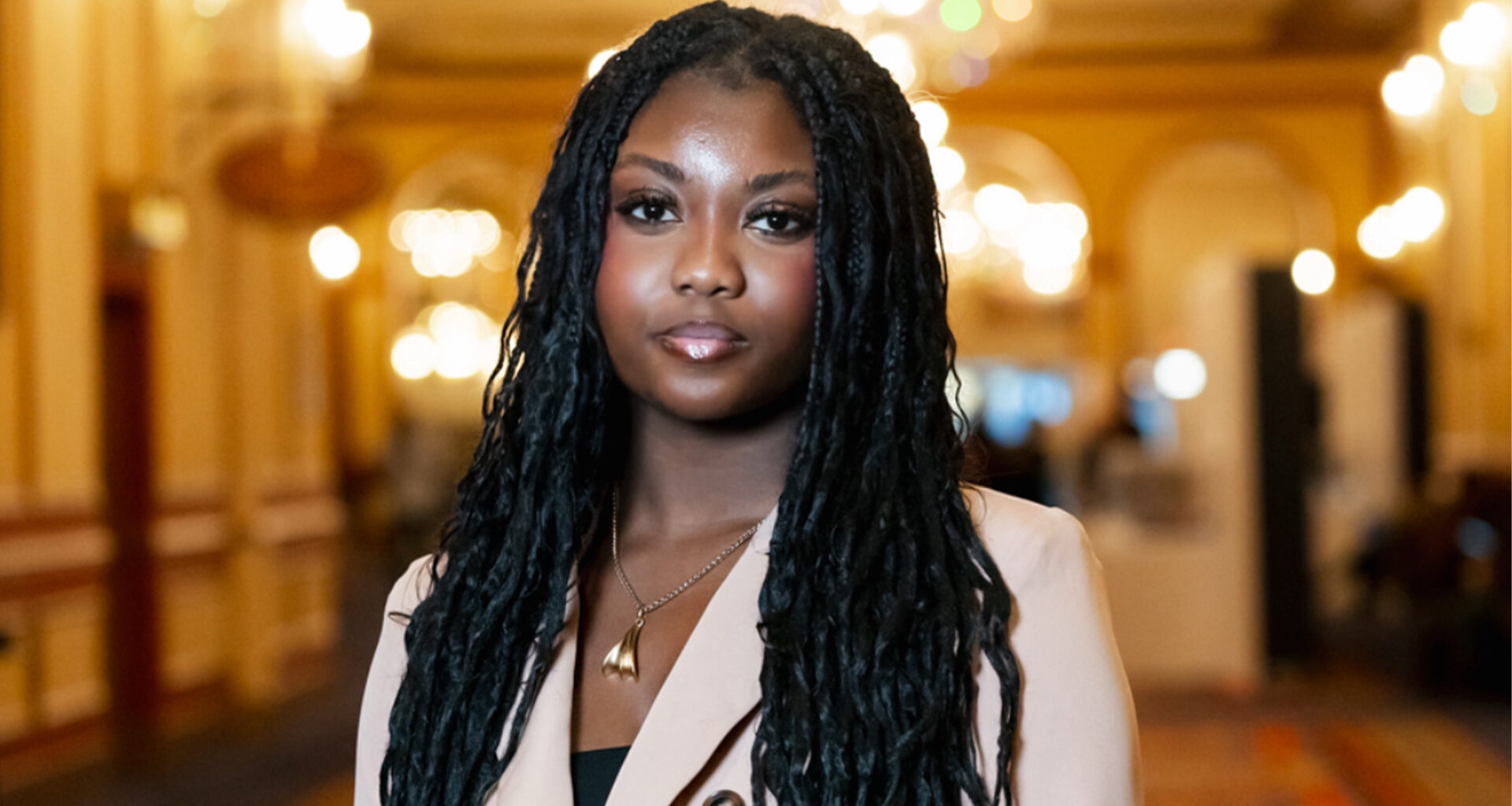Nineteen-year-old Titilope Olotu has secured grant funding for her innovation around menstruation.
Advocacy For Health
Born and raised in Nigeria, Olotu recalls experiencing various inequities in health care dating back to her time in school. Her mother enrolled her in school three years early because she was an advocate for education. Olotu remembers girls using rags and foam from their beds as menstrual products during their periods.
“I was traumatized,” she reflected in an interview with AFROTECH™.
Olotu added that menstruation carried a negative stigma in Nigeria, with taboos discouraging women from being around men and discussing their cycles. Her perception of menstruation changed after moving to the U.S. in 2015, at age 9, following an incident in her California middle school gym when she got her period. She was assigned to a male teacher but only accepted help from the lone female gym teacher on staff, who comforted her by wrapping a hoodie around her waist and walking her to a separate room.
“She gave me this pouch. And in the pouch was a menstrual pad. And then it was like these stickers and things are like ‘Menstruation is good, and menstruation is fun,’ and, ‘You’re strong,’” Olotu recalled.
“And that’s kind of when I saw menstruation in a different light … This is a privilege that I received, and I wanted to kind of extend it further,” she added.
Olotu is now a third-year undergraduate student on a full-ride scholarship at the University of California, Los Angeles, majoring in biology and in the process of declaring a second major in women’s health, she confirmed separately. Her overarching goal is to become an OB-GYN.
In the meantime, Olotu is fulfilling far more than her studies. She is using her time to give back in several ways. This includes the inception of her nonprofit, Period Padi, in 2024, with “padi” meaning “friend” in Nigerian Pidgin. The nonprofit initially focused solely on eliminating period poverty in Nigeria, but has expanded to offer mobile wellness booths that provide students with mental health, academic, career, and menstrual resources, with offerings tailored to the needs of the school.
In summer 2024, Olotu recognized there was a broad trend of women online who were complaining about a major period-care brand creating more cramping and heavier bleeding. This led her to source banana fiber pads — which are chemical-free and sustainable — as an option, following extensive research.
In November 2024, Olotu launched the Premenstrual Dysphoric Disorder campaign to assess women’s mental health as it relates to their menstrual cycles. Through her observations, she recognized that 12 of the 212 women surveyed globally developed antibiotic resistance due to bacterial vaginosis (BV). Women were then seeking home remedies from Olotu after their doctors redirected them, which led her down a rabbit hole on TikTok search, and castor oil came up as a solution.
“How can we legitimize this? Why is it not a scientific proven thing? But in that very moment, I just came to understand that you can’t make castor oil a product,” she warned.
“It’s an oil, it has a lot of dangers. So the only thing you can really do is, since it’s not proven, you can help these women avoid the risks of castor oil. Because even though it’s working, doesn’t mean it works for everyone. A young girl, I wouldn’t want her using castor oil if she has BV when it’s not scientifically proven or medically proven,” she continued.
“It’s just this thing that we’re seeing on TikTok, this trend that’s working, but there’s no research paper on it. So that’s why, for me, I was like, ‘I want to go into something more definite,’ which is early diagnostics,” Olotu added.
An Innovative Solution
This led Olotu to build on the efficacy of her work in October 2024 and establish a smart, sustainable biosensing menstrual pad coupled with an AI-powered data-tracking platform, which has been supported with $38,000 in grant funding (at the time of this writing). As women menstruate into the pad, key biomarkers for hormones, pH levels, infections, and iron can be tracked through colorimetric analysis, enabling proactive health monitoring, Olotu explained.
“A woman would menstruate as normal, but within her pad, if she flips it after menstruating, all she needs to do is flip, and on the back, there will be a reagent area with different biomarkers. That biomarker would then be able to tell her, like, if it’s a deeper shade of purple, she has higher iron. Fainter, she has less iron. The key point is there’s a pad, there’s a readout on the back of it. It shows you what the colors are. You can scan it with the platform, and then you get your results,” she continued.
The biomarkers on their own can provide simpler diagnoses, but assessing them alongside lifestyle factors, which can be shared on the AI-powered data-tracking platform, will yield a personalized diagnosis. From there, a health analysis can be generated for proactive insights and shared with medical providers. Also, an in-app consultation with telehealth providers will be an option for users in the future.
“Some of these conditions are not easily detected because it builds up over time. So rather than getting to that worsened extremity, we want to help you tackle it at its initial stage,” she explained.
The platform will further empower women through cycle tracking, mental health support, and a community forum. It is expected to be released to the public in 2026.
Currently, the mobile web app is available only to women participating in preclinical assessments.

